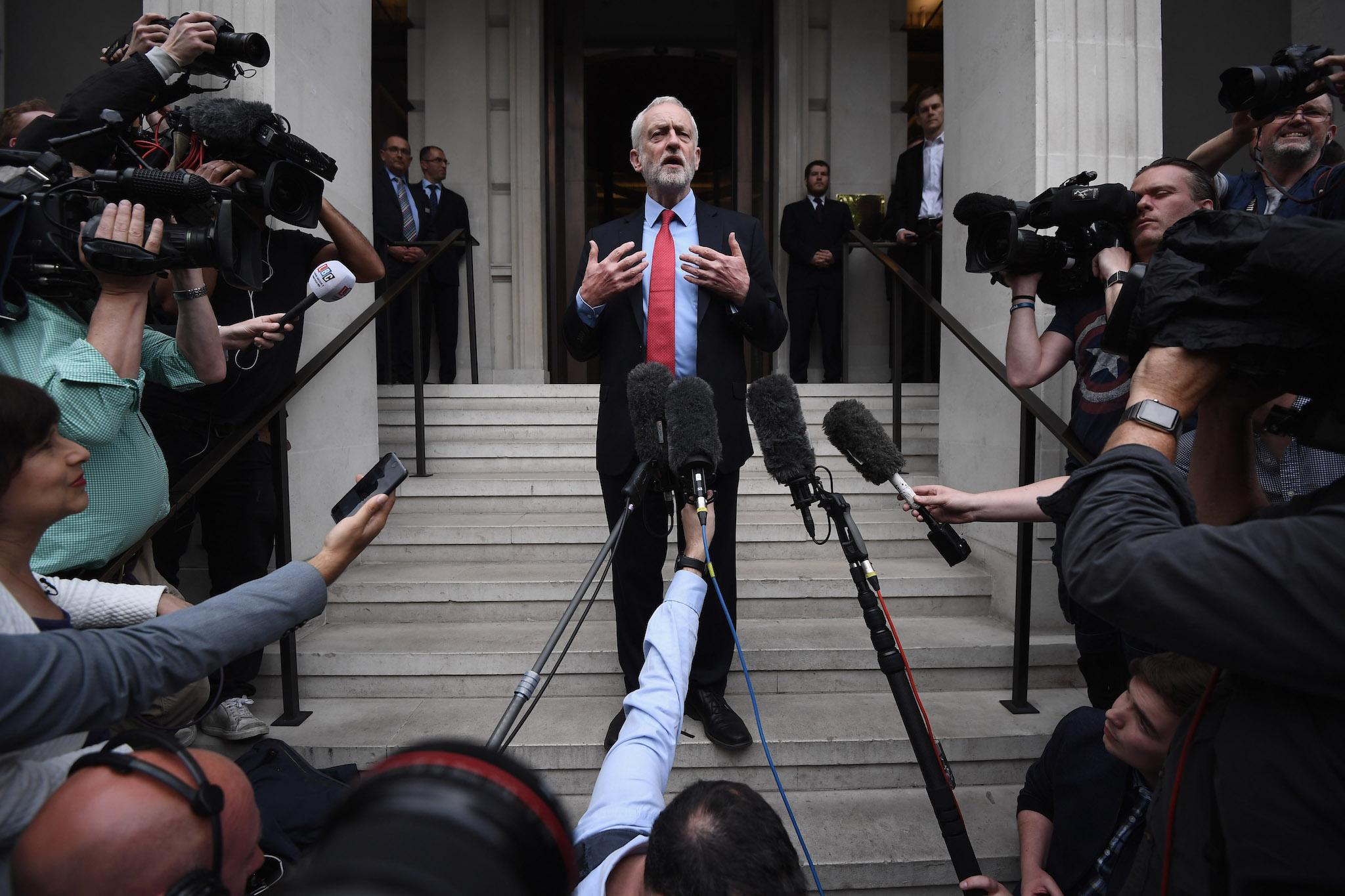Jeremy Corbyn far more likely to be attacked by media than Theresa May, election reporting audit reveals
Newspaper and TV coverage has been overwhelmingly hostile, according to the study

Your support helps us to tell the story
From reproductive rights to climate change to Big Tech, The Independent is on the ground when the story is developing. Whether it's investigating the financials of Elon Musk's pro-Trump PAC or producing our latest documentary, 'The A Word', which shines a light on the American women fighting for reproductive rights, we know how important it is to parse out the facts from the messaging.
At such a critical moment in US history, we need reporters on the ground. Your donation allows us to keep sending journalists to speak to both sides of the story.
The Independent is trusted by Americans across the entire political spectrum. And unlike many other quality news outlets, we choose not to lock Americans out of our reporting and analysis with paywalls. We believe quality journalism should be available to everyone, paid for by those who can afford it.
Your support makes all the difference.The media is attacking Jeremy Corbyn far more than Theresa May through the election campaign, according to a new analysis.
A “considerable majority” of the reports on Labour are critical of the party and its manifesto, a report from Loughborough University claims. Newspapers are being far more balanced in their coverage of the Conservatives, the report said, with positive and negative reporting balancing each other out.
What's more, the attacks on Jeremy Corbyn's party are coming from the most popular newspapers, with The Sun and the Daily Express particularly focusing their negative coverage on Labour. The Mail and The Times have also been hostile to Labour, the academics report, but have balanced that out with positive reporting on the Conservatives.
As a rule, even the more pro-Labour newspapers have focused on attacking the parties they don't support rather than running positive coverage of the one that they do.
The findings come from the second edition of Loughborough’s Centre for Research in Communication and Culture weekly reports into national news reporting of the election.
In contrast with the week before, the university found Labour is appearing far more on TV and in the news, after losing out to the Conservatives. And the issues dominating that coverage have changed, too – with Brexit becoming far less of a concern.
Still, the issues that the Conservatives are fighting the election on are remaining at the front of the debate. But Labour has been more successful in its second week of campaigning in getting their central issues – social welfare and health – onto the news agenda.
The report stressed that the increased prominence of Labour may be a consequence of the leak of its manifesto during the period, which concentrated media coverage on the party.
Meanwhile the other parties – including the SNP and Ukip – have received far less coverage than they did in the 2015 election. Plaid Cymru received the lowest amount of coverage among the major parties, but all apart from the biggest two have seen decreased focus.
Loughborough’s analysis works by looking at all of the election coverage published on weekdays by TV news channels and print newspapers. The new report covers the time between 5 May and 17 May, when election campaigning kicked into full swing.
The audit was launched by the University as a way of keeping a check on campaigning.
“For most people the media is their primary source of information when it comes to deciding who to vote for,” said Dominic Wring, one of the professors leading the project. “Therefore the role and importance of the media in elections should not be underestimated. Being able to see who and what is making the headlines is very important.”
Join our commenting forum
Join thought-provoking conversations, follow other Independent readers and see their replies
Comments